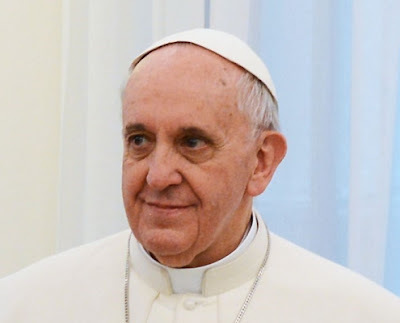Stephen Roney's Blog, page 12
May 25, 2025
Women and REvolution
 Women's march, St. Petersburg, 1917
Women's march, St. Petersburg, 1917Here’s another example of our ignorance of history, like the one about continuing aboriginal ownership of Canada.
An Iranian feminist friend boasted to me proudly of the recent “Woman, Life, Freedom” protests in her homeland that this was the first time ever that a revolution has been led by women. See the feminist progress?
This is pretty much the reverse of the truth.
The Russian revolution was kicked off, most historians would agree, by a mob of women marching to the palace for International Women’s Day, with the cry “Bread and Peace.” At that point, members of the Palace Guard defected to the crowd.
Similarly, in October 1789, a mob of Parisian women marched on Versailles demanding bread—you will recall the comment attributed to Marie Antionette, “let them eat cake.” This event “is often seen as a turning point in the French Revolution, marking the moment when popular action decisively shifted power from the monarchy to the people.” By the time they reached the palace, the National Guard had reluctantly joined the women.
In the EDSA revolution that overthrew Marcos in the Philippines, nuns formed human barricades to stop the tanks. That seemed to be when government resistance broke.
Women usually play the crucial role in any revolution. When they rise up, in a body, the end of that regime is near. For several reasons.
First, women are temperamentally opposed to revolution; they are in favour of stability, docility, and continuity. Freedom means less to them. They only want bread; to live their lives in peace. For women to rise up, the situation must be dire. It means the regime’s natural constituency, its last support, has evaporated.
Second, men are programmed by nature to care for woman. A palace guard might obey orders to fire on a mob of men; but to fire on a mob of women is, to most men, unthinkable. Therefore, when a large mass of women rise up, the government has no defense against them. Men’s allegiance to women intrudes as a higher authority than their allegiance to any job or government or self-interest. If the women want a new government, the men must obey.
Revolutionaries generally understand this. This is why the Southern Christian Leadership Conference chose Rosa Parks to refuse to yield her seat on that bus. This is why Nurse Edith Cavill was so important to British propaganda in the First World War. This is why the group organizing the Freedom Convoy in Canada coalesced behind Tamara Leich as their public face. This is why the early suffragettes tried to get themselves arrested for defying the law and voting; why Emily Darbison deliberately got herself trampled at the Epsom Derby in 1913.
Women have always had immense power and privilege, at least among developed nations.
'Od's Blog: Catholic comments on the passing parade.
May 24, 2025
History Should Not Be a Mystery

In 1984, George Orwell wrote, “Who controls the past controls the future. Who controls the present controls the past.”
As so often, he was prophetic. There has been a systematic movement, in our schools and in the media, to suppress history. Things disappear down the memory hole. This allows those currently in power to control the future.
A clear and present example is the public opposition by some First Nations officials to Alberta’s talk of an independence referendum. They claim that Alberta cannot separate because they are sovereign over the land. Such things are purely their decision. If Danielle Smith doesn’t like it, she should just move off their land.
Grand Chief Greg Desjarlais of the Confederacy of Treaty Six First Nations stated that treaties, which encompass most of central Alberta, cannot be dismissed by separatist ambitions, declaring, “Our nations do not and will never consent to the separation of our treaty territories. These lands were never ceded, nor surrendered.” Chief Sheldon Sunshine of Sturgeon Lake Cree Nation and Chief Billy-Joe Tuccaro of Mikisew Cree Nation accused Premier Danielle Smith of breaching Treaties No. 6, 7, and 8, asserting that Alberta lacks authority to interfere with these agreements. They demanded she cease separatist rhetoric, stating, “The province has no authority to supersede or interfere with our Treaties, even indirectly by passing the buck to a ‘citizen’ referendum.” Chief Troy Knowlton of Piikani Nation emphasized that separation requires First Nations' consent, saying, “Alberta lacks the authority to interfere with or negate those Treaties. Proceeding down a path toward separation cannot be undertaken without the consent of Alberta’s First Nations.” Chief Roy Whitney of Tsuut’ina Nation warned, “The province has no authority to try and separate.”
This is false. In the plain language of the treaties, the Indians (the legal term) surrendered all sovereignty and property rights to the Crown, its heirs and assigns, in perpetuity. Should Alberta separate, the treaties are simply transferred to the government of Alberta as the king’s assign, just as earlier treaties with Britain were transferred to Canada when Canada separated.
According to the treaties, Indians/First Nations have no more say regarding the future of Alberta than any other citizens. As, of course, human equality and equal rights demands. Unfortunately, it is useful to the powers that be to perpetuate the myth that the First Nations, and aboriginal people generally, have some important residual right to control the land. This means those in power can pay off a small group to block the will of the people and leave them to do as they wish. In this case, of course, they do not want to lose control of Alberta’s mineral resources.
Other than their leaders being paid off, there is really no plausible reason for First Nations to object to Alberta separation. It does not affect them any more than any other citizen.
Those in power would not be able to get away with this if history was properly taught in high school. But when it comes to aboriginal matters, the real history has been systematically, almost hysterically suppressed. One must not bring up the fact, for example, that no mass graves of missing Indian students have actually been found on the grounds of the old residential schools—a claim that was outlandish on its face. It has come to the point at which one NDP Member of Parliament introduced a bill making any claim that the residential schools were not genocidal punishable by a prison term.
Examples of the memory hols and its consequences could readily be multiplied. We need to teach and study history.
'Od's Blog: Catholic comments on the passing parade.
May 21, 2025
Why the Ban on the Latin Mass?
 Paul VI
Paul VIWhy did Pope Francis, or for that matter, Pope Paul before him, ban the Latin mass?
With its many liturgies, in many nations, the mass is offered in any language you can think of, ancient and modern. Except in Latin, the traditional and official language of the church. How can that make sense?
Francis himself suggested that the Latin mass represented defiance of his authority; it was schismatic. But this is tautological: if he allowed the Latin mass, it would not be. He bans it because he bans it.
It is no challenge to the work of Vatican II: Vatican II never mandated mass in the vernacular. It expected Latin to remain the language of the mass. It was bishops’ conferences who took this step. It forms no part of the magisterium, no part of church doctrine.
Someone has said Francis’s ban came from the Italian bishops. They were alarmed that new priests all wanted to learn and serve the Latin mass. They foresaw, or saw, a shortage of priests for the standard “Novus Ordo.”
This sounds plausible. From the beginning, the “new mass” was not popular with the faithful in the pews. Popes John Paul II and Benedict opened it up again, and the problem recurred: faithful and lower clergy were abandoning the Novus Ordo and flocking to the Latin mass.
If the purpose of the church is to evangelize, if its mission is pastoral, if it listens to the works of the Holy Spirit, this should actually argue for encouraging the use of the Latin mass.
But Vatican II and the hierarchy introduced the Novus Ordo precisely for pastoral reasons: to make mass more popular, more accessible to the people. To admit the Latin Mass is still more popular is to admit failure.
Regardless of the motives of those who attend, in their own minds, the growth and spread of the Latin mass makes them look like fools. Fools and sellouts, shepherds following the sheep.
The hierarchy under Francis, or perhaps just Francis, have let their own interests supersede the interests of the church, of Jesus, and of suffering humanity.
I say this even though I am not, personally, drawn to the Latin Mass.
'Od's Blog: Catholic comments on the passing parade.
May 19, 2025
Loyalist Day

Loyalist Day used to be an important annual celebration here in Saint John, New Brunswick. The city traces its founding to the summer of 1783 when 17 ships arrived from New York and Boston harbour, unloading the losers in the American Revolution. They found themselves on a small rocky peninsula, an island at high tide. There was nothing here but rocks and trees, and the winters were severe. That first winter, most built tents insulated by spruce boughs. Someone had to stay awake at all hours to keep the fire going. There was an average of one death each day among them.
Only two years later, they had a royal charter for the first official city in British North America. Saint John, as we know it, had begun.
But in recent years, the city has refused to fund any special activities to commemorate Loyalist Day, the day the first ships landed. The memorial plaque and stone marking where the Loyalists came ashore, was pulled up and abandoned in a quarry on the west side.
When local historians complained, they were told by city council, “We don’t care about those English people.” And someone remarked “I wonder what the native people thought, when they came to steal their land?”
I find this callous, racist, and willfully ignorant. The whole reason Canada exists apart from the United States, is loyalty to the crown and the British connection. If we reject that, if we reject the Loyalists, we reject Canada. And there is no good response to Trump’s proposal for assimilation.
The people who waded ashore that summer were not, of course, English. They were American. Even then, America was something of a melting pot. Among them were 500 freed blacks who had made it to the British lines, for Britain refused to recognize slavery. Although not among the group that landed at Saint John, a significant number were native people, notably the Iroquois of upstate New York. There were Dutch from New York, which had been New Amsterdam. There were many Germans, including discharged Hessian soldiers. There were Jews among the group that landed in Saint John; and of course Scots, Welsh, and Irish. Don’t ever tall a Scot or an Irishman he is English.
But ethnicity should not matter. People are people. Suffering people deserve our sympathy regardless of their skin colour or language or race, and brave people deserve our admiration regardless of where they were born.
Especially when we are their inheritors. This is a question of filial piety: honour thy father and thy mother. We owe them a lot. They laid out the streets, established our forms of government, our first social institutions, many of our sports and pastimes, our cuisine, our arts, our folkways; although of course other groups have contributed since. And the city and nation they bequeathed us is, most certainly, one of the finest we could hope for in this fallen world. Travel a bit and you will see. People want to move here from most other places.
As for the local native populations, the matter is complex. Groups and individuals fought on both sides during the American Revolution; as they had in the French and Indian Wars. They were not passive victims, but participants, in these conflicts. Some lost, just as some Europeans lost.
Broadly speaking, however, European settlers did not steal their land, at least in Canada. Everything was done by treaty, in principle by mutual agreement and with compensation. And the end result: Canada is still 89% unsettled Crown Land—over which, by treaty, today’s native people are free to roam, hunt, and forage as they always did. Only eleven percent of their prior lands have been given over to settlement—and of course, native people have been as free as any other citizens to take up these lands too. They own that eleven percent still in the same sense all other Canadians do.
Back in the day, in 1783, the presence of the European settlers was generally welcomed. It granted the native people security in possession and use of their lands—before this, before treaties and redcoats, warfare was more or less constant. If you encountered a member of a different tribe in the forest, you feared violence. You feared violence at home in your sleep. The presence of Europeans, especially in a place like Saint John, at the mouth of a long river, offered opportunities for trade that made native groups located near a European settlement rich. It gave them military advantages over distant rivals: not just through alliance with the Europeans, but by trading for iron knives and hatchets, guns, horses. And perhaps most importantly, having Europeans nearby protected native people from the ever-present danger of famine: crops, crop storage, and ships arriving with cargo from overseas were far more reliable food sources than the rivers or forest.
Not such a bad deal.
I have not a drop of English blood, so far as I know. I do not believe any of my ancestors were UE Loyalists, But happy Loyalist Day.
'Od's Blog: Catholic comments on the passing parade.
May 18, 2025
Francis and Mark Carney as Abusive Fathers

Two unaccountable and unpredicted things have happened recently. I think they are connected.
First, everyone thought the successor to Pope Francis would be a progressive “Francis 2.0.” After all, Francis had appointed 80% of the voting cardinals. Yet Leo XIV is so far signalling traditionalism. How did that happen?
Second, having just won an election, Mark Carney’s cabinet and caucus seems rife with dissent. This shouldn’t happen right after an election win. Liberal MPs live in fear of their leader: he gets to veto their nominations if they alienate him. And Carney just saved the party’s bacon. Until he stepped in, they were headed for a historic defeat. Why the dissatisfaction?
In the case of Rome, I think we all missed the dynamic in thinking the divide in the hierarchy was between “progressives” and “traditionalists.”
The first sign was a report that, as they gathered for Francis’s funeral, the cardinals demanded the opening of a repository of traditional vestments kept under lock and key by Francis. Were they all secretly traditionalist?
Then reports of an elevated mood in the Vatican—shocking at the death of a pope. Now someone is quoted as saying, for the years of Francis’s pontificate, they were all living in fear. “It is like we are escaping an abusive father.”
And that, I think, is the key. Not left or right, progressive or traditionalist, but abusive.
Francis gave no moral direction. He seemed annoyed by those who followed the traditions of the church; yet offered no clear alternative either. This left everything up to the will of Francis.
Take, for the most obvious example, the Latin mass. Francis suppressed it, on the grounds that wanting the Latin mass was an expression of opposition to his authority. That was a tautology: if he did not suppress the Latin mass, wanting it would not be an expression of opposition to his authority.
I(t was all about the exercise of power. Francis was a narcissist. Narcissists worship their own will.
When a parent, or a superior, acts in this way, one lives in constant fear. You can never know whether you are doing right or wrong, you can never relax or feel good about yourself; you never know when the hammer will fall. Francis’s position on any given matter was unpredictable: he blew hot and cold; it seemed to depend on how he was feeling that day. He had arbitrary favourites, and punished others arbitrarily.
This is the essence of abuse. The sense of disorientation this causes is the font and source of virtually all spiritual distress, which we commonly and improperly call “mental illness.”
Francis was driving everyone mad.
And Carney seems to be in the same mold. What is his true stand on any issue? He campaigned on imposing tariffs on the US, and standing up to Trump. Now he has quietly suspended the tariffs. He endorsed the carbon tax, then set it to zero.
In personnel matters, word leaked out that Chrystia Freeland was being dropped from cabinet; then she wasn’t. I suspect this was not a false rumour; Carney changed his mind. A more public example is Nate Erskine-Smith. In Carney’s first, stripped-down cabinet, he kept Erskine-Smith. Only a month later, in his greatly expanded cabinet, he dropped Erskine-Smith. This seems inconsistent, arbitrary. This is clearly the way Erskine-Smith experienced it; he got blindsided. Carney kept Stephen Guilbault in Cabinet, and promoted Anita Anand, seeming to signal a turn to the left; then publicly adopted much of the Conservative platform. This seems like a mismatch; he seems to have blindsided them too. It is as though Carney is just enjoying imposing his will. Another narcissist. L’etat, c’est toi.
A dysfunctional caucus, a dysfunctional church, or a dysfunctional family, is the result. “Mental illness” is the result.
'Od's Blog: Catholic comments on the passing parade.
May 17, 2025
Happy Happy Joy Joy
It is the usual state of the world that the lunatics are in charge of the asylum; that, as Jack Kerouac put it, the cream sinks to the bottom.
This must be in the divine plan. If we did good only to achieve worldly success, there would be no merit in doing good. It would be mere self-interest.
We must do our best knowing that, given the ways of the world, we are as or more likely to be punished for it than rewarded. We do good, or create beauty, or seek truth, because it is right, not for reward.
We have hopes for the next life. But this requires the virtue of faith. We trust in God.
“He will wipe every tear from their eyes. There will be no more death or mourning or crying or pain, for the old order of things has passed away.”
This makes the “happy happy joy joy” sort of Christianity profoundly sinister. This life is the vale of soul-making, of testing and trial. If you are having a very good time here, something is gravely wrong. You have given in to the world’s temptations. “Blessed are those who mourn.” “Woe to you who are laughing now, for you will mourn and weep.”
'Od's Blog: Catholic comments on the passing parade.
May 16, 2025
Why the Arts Suck These Days

The arts ingeneral have been moribund since the mid-seventies. If you ever wondered why,the answer is simple. They declined as “political correctness” rose, now metastasizedas “cancel culture” and “wokeness.”
Theimagination must be free. It cannot judge or play politics. It must seek truth.But since the mid-seventies or so, everyone has had to walk on eggshells, thinkcarefully before saying anything. Truth is dangerous.
It becomestoo dangerous to say anything new. You cannot predict who might take offense atwhat; and end your career, take away your livelihood. The safe thing is to do onlywhat has been done before. And so the arts become bland and monotonous. Mere mindlessentertainment, at best. One song sounds like another. One film looks likeanother. One novel reads like another.
But eventhis is not enough, either. The Overton window is a moving; one must then addsomething to virtue signal, to be truly safe—throw in a trans character, makethe hero black, and so on. And make sure they are entirely admirable, withouthuman flaws. Condemn the groups you are currently supposed to condemn: theJews, Southern whites, the religious, men. Making the product even more shallowand predictable.
Andunethical; just as good art must insist on truth, it must also insist on morality.Yet these current productions are obviously small-minded and cynical. You feeldirty watching, or reading, or listening.
Artists must do this, editors must do this,producers must do this, gallery owners and art critics must do this. Or have nocareer.
Any goodart must be suppressed immediately as dangerous.
Suppressednot only by the galleries, the publishers, the theatres; also on the Internet, whereindependent producers might otherwise shine through.
Humour isperhaps the most obvious example. Any good joke requires a surprise, a reversalof expectations. That becomes too dangerous in the atmosphere of politicalcorrectness. It is safest not to try to be funny.
Andeveryone can see the result. Whatever happened to Mad magazine, Saturday NightLive, National Lampoon, Monty Python?
That wasthe Sixties, and the early Seventies, when almost all the arts were blossoming.
Blossoming because there was an atmosphere ofanything being permitted. This was, notably, just as the old pornography codeshad been lifted, on movies and TV; and the Supreme Court had struck down muchother censorship. Moreover, the speech codes of the McCarthy era had just beendiscredited.
Result: agreat flowering of the arts.
You cantrace similar periods throughout history.
We needanother burst of freedom. We are overdue. And I feel it is about to happen. Peopleare chafing at the absurdities of wokeism. Major figures are bucking it, and seemto be starting to break through rather than being ruined.
Such eras ofrepression are mostly sustained by general cowardice. As Solzhenitsyn once saidof the old Soviet Union, if any one person had resolved to get up one morningand only speak the truth, the whole structure would have collapsed. Anexaggeration, but it is generally true that evil by itself is powerless: whatis needed for it to triumph is for good men to do nothing.
If it falls,when it falls, it will collapse quickly, and there will be a great flowering ofthe arts. I hope soon; I hope I live to see it.
'Od's Blog: Catholic comments on the passing parade.May 15, 2025
Boer Refugees
 A boer family, circa 1910
A boer family, circa 1910Don Lemon has objected to taking in South African Boers as refugees because they own land and are relatively well off. So how can they be considered refugees?
This is a Marxist misconception. Groups that are poor may be oppressed, but they are not necessarily poor because they are oppressed, and they are not necessarily oppressed because they are poor. And when it comes to genocide, it is a conspicuously successful minority who are most at risk. Few feel driven to kill someone else because they are poor.
This is of course the eternal story of the Jews. In Weimar Germany, they were more successful than the average German. They were too prominent in business and the professions. So were the Armenians in the Ottoman Empire, leading up to the Armenian genocide. So were the kulaks wiped out by the Soviets, causing the Ukrainian genocide, the Holodomir. So were the “bourgeois” and “intellectuals” targeted by the Red Guards in Maoist China, and by the Khmer Rouge in Cambodia. It is why the Knights Templar were massacred in the Middle Ages. It is why South Asians were dispossessed and expelled from Uganda by Idi Amin.
It is profoundly dangerous to be a recognizable minority materially more successful than the majority.
First, it is an obvious temptation to take your stuff. Especially if you are a recognizable minority, the majority can do this without supposing their own property might be at risk. That said, raising taxes on “the rich” to make them pay their “fair share” is invariably a winning slogan in a democracy. The rich are ready scapegoats.
Second, this is the deadly sin of envy. No other sin is more dangerous to society.
Guilty because their ancestors practiced apartheid? That's "blood guilt." The Jews know something about that too.
The South African Boers have a greater claim on our sympathy and our sanctuary than perhaps any other group in the world today. More broadly, “whites” are in danger almost everywhere for this reason: they have been too successful. We ought to be alert to the danger—and act before the Holocaust begins.
'Od's Blog: Catholic comments on the passing parade.
May 14, 2025
The Art of Editing

I miss the grand old magazines; you trusted their editors to give you some perspective.
I miss The Economist, as it once was and is no longer. I realized they had lost it when they abruptly switched from referring to Jean-Marie LePen as “that thug” to “that wily old paratrooper.” He had become a legitimate contender for the French presidency. So I realized they were subject to influence. Then I started noticing a feminist slant. As a comment online has it, “You’d think that a magazine called The Economist would understand something about economics — but only if you hadn’t read The Economist in the last 15 years or so.”
I miss the old Time magazine, which used to have such editorial style. It used to delightfully break the rules. Everyone knew you sold more copies with a photograph on your cover; for years, Time insisted on being artistic, and having a cover illustration. It made its own rules: it introduced, for example, the "interrobang." I realized they had lost it when an article described the Nazis as rejecting progress; as if that was the problem. This was the opposite of the Nazi concept. They were the “progressives,” the “futurists.” This mischaracterization struck me as deeply sinister. They were apparently trying to identify the Nazis with modern conservatives.
I miss the old Free Press Weekly; now long gone. I expect few will know what I am talking about. I cannot even find it in any archives online. A publication of the Winnipeg Free Press. It was supposedly a farmers’ paper, but the editorial selection was wonderfully quirky. Crazy things like experiments in ESP; but not sensationalist. Not like the Weekly World News. More like listening to Joe Rogan today.
I miss the old Hit Parader. The title is misleading; it was not just a fan magazine. It was musically literate and excellent on insights into the best in current popular music. The editor, whoever it was, just had great taste.
National Geographic: I used to love it in my youth. Many did. At one point I bought all the back issues on CD. Great photography as well as great, informative articles. Now if I pick up an issue it is all politics, and nothing you couldn’t predict without bothering to read.
I miss the old National Lampoon. It was the product of fine creative minds. I assume, as is usually the case, its success depended on one particular editor, and when he moved on, he could not be replaced.
Alberta Report was once great. But the founder and original editor, Ted Byfield, retired from it, and it did not last much longer. Catholic Insight used to be great, but the editor, Father de Valk, retired, and it quickly withered to an online publication of irregular bland articles.
Harrowsmith was once great. But the original editor lost control in a divorce settlement and it soon spiralled downwards into trite politics.
A similar thing happened online with Arts and Letters Daily. It used to be the place to go for everything new in arts, culture, and ideas. Now it’s not worth bothering with.
Drudge Report is another striking online case: it used to be a place you had to visit regularly in case you missed something. It broke many stories. Then something happened. I don’t know what—supposedly Matt Drudge is still editing it. But I suspect he has secretly retired and delegated editorial decisions. Or maybe he just got lazy.
Conclusion: a great managing editor is a rare and invaluable creative talent. Bad editors tend to cover for lack of judgement or imagination by going political. And for some reason, always leftist politics. If their politics are on the right, they remain unpredictable and interesting.
I think the same thing happens in academics.
'Od's Blog: Catholic comments on the passing parade.
May 12, 2025
The Stigma of Mental Illness

Friend Xerxes has written a recent column arguing that
1. There should be no stigma around mental illness.
2. People who are mentally ill should get professional help.
However, on the way he raises something else, which I think is more important. He argues that mental illness is really sin. Which explains the traditional stigma. But there should be no stigma around sin either. Sin is just a matter of “being different.”
“A medical issue,” he writes, “is probably better than lynching people for being different.”
This is a radical and a philosophically untenable position; ask Kant. Right and wrong are not arbitrary or random categories.
We should not condemn someone for rape or murder? They are just being different?
How about, say, Hitler?
And if there is no right or wrong, how then can you condemn anyone in turn for condemning anyone? They too are just being different. You have no basis to judge any action, to act or not act.
So is mental illness sin? Does this explain the stigma traditionally attached to it?
The argument is plausible.
A “mental illness” is self-evidently or definitionally spiritual—the mind is the spirit. This means, to begin with, that to refer them to medical science or a physician is obviously wrong. Spiritual illnesses are the preserve of the priest. And indeed, psychiatry and psychology say they cannot cure these things.
There are two forms of spiritual illness. Firstly, sin, a wilful turning away from truth and good, and secondly, being “dispirited,” a loss of meaning or understanding of what is true and good.
Most of what we call mental illness is the latter, a loss of meaning: a disorientation, a lack of confidence in what is and is not real or of value.
There is nothing shameful about that. So why is shame attached to it?
The shame and guilt that is being concealed by pretending there is no sin and that it is a medical issue is in this case the guilt of the family, those around him or her, not the sufferer. It is pretty well established and understood that such “mental illness” is caused by childhood abuse and neglect. So sin is involved, but the “sufferer” from “mental illness” is the victim of the sin, not the perpetrator. It is in this sense that the Bible say that “the sins of the father are visited on the son, unto the third or fourth generation.” It is this that is implied by the concept of original sin.
This being so, the worst possible treatment for “mental illness” is the one currently always prescribed: to leave treatment to some family “caregiver.” This is to condemn the victim to a lifetime of torture. All to conceal the corporate guilt. They are, in effect, designated scapegoats.
This truth is complicated because other things we class as “mental illness” are indeed sins—or more properly, vices. These are the psychopaths, sociopaths, and narcissists, the “Type B personality disorders.” These are the guys who shoot up schools and drive cars into crowds.
It’s all pretty straightforward, and solvable, “treatable,” once you accept the reality of sin. Lamentably, as Xerxes says, only “white American evangelicals” any more believe in sin. Properly speaking, Catholics do to, as does the Lord’s Prayer. But the torrent of the world has caused this to be suppressed even within Catholicism. I balked at the curriculum and pulled out of teaching Catechism class for the local diocese because the curriculum prohibited any mention of sin. “The message has to be only that God loves you.” Nor will you hear any mention of sin from the pulpit; for all that they still have the sacrament of confession, more recently renamed “reconciliation.” The core message at a recent “Life in the Spirit” seminar was “we are born to love, and learn fear.”
So the problem is not sin, but fear of punishment.
As a result, we have a growing epidemic of “mental illness,” suicide, addictions, and mass murder.
'Od's Blog: Catholic comments on the passing parade.



